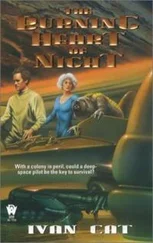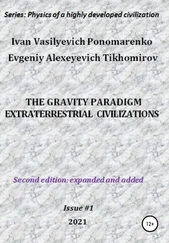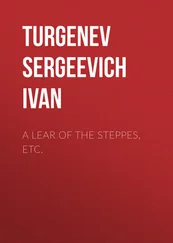“To do what?”
“I was coming to that: To ‘clear the land’!” He threw his hands up in two V signs and scored quotation marks around the words with his fingernails. “May I borrow a spade?”
“Only with pleasure!”
Malgas was delighted that the action was about to begin at last. He was also secretly touched that Nieuwenhuizen had said “upon us” rather than “upon me.” He fetched a spade from his garage and gave expert instructions about its use. Then he rushed off to the café, promising to return in two ticks.
Nieuwenhuizen ran a finger over the blade. It was blunt. He began sharpening it on a kerbstone. Before long he heard Malgas huffing and puffing back, and he quickly retired to the inner reaches of the plot (block IVF) and threw himself into his task.
Malgas was not so easily put off. He craned his neck. “Need a hand there Father?”
“Thanks but no thanks,” Nieuwenhuizen responded without looking up. “I’ll give you a call when I need you. You go home and catch up on the news.”
Malgas went sadly on his way.
Nieuwenhuizen set upon the vegetation with a vengeance, flattening stems with his boots and hacking at roots with his spade. In a minute he was immersed in a cloud of dust and scented sap, which he gulped down in dry, foaming draughts. The brew was intoxicating.
Mr Malgas watched the slaughter from his lounge, and then from his kitchen, and finally, as the dust thickened, from the side of his house through the garden wall. He found Nieuwenhuizen’s methods outlandish. The man wielded the spade with authority despite his offbeat sense of rhythm, and he had stamina, you had to admit. There was power in his thin arms too, for with one blow he was capable of shearing a small shrub clean off at the root, leaving nothing but a cross-section of stem like a peppermint spat out in the dust.
But his technique. . What could one say? It was flawed. He spent an inordinate amount of energy on purely decorative effects. Between blows he liked to hum a bar or two from a march and lay about him with the spade, inscribing fleeting arabesques and curlicues on the moted air. He also enjoyed twirling it like a baton, whirling it like an umbrella and tossing it up like a drum-major’s mace. In a different context these affectations might have served to demonstrate his dexterity, but strange to say here they had the opposite effect: the implement, moving gracefully through space, acquired a life of its own. Rather than guiding it, Nieuwenhuizen seemed to trip after it like a clumsy dancing partner, flinging his limbs in many directions.
“The worst thing about all this tomfoolery,” Mr Malgas thought, “is the amount of precious time it wastes.”
Nieuwenhuizen was unstoppable. When a tap-root resisted his assault he hopped up on the spade with his boots on either side of the handle and swayed backwards and forwards like a jockey, driving the blade underground. Then he threw his weight upon the handle and popped a sod as big as his head out of the earth.
Day after day, block by labelled block, the deforestation went on. The call for Mr Malgas never came. But he was not one to stand on ceremony: every evening after work he went next door uninvited, bearing some little excuse for a visit filched from the store. On Monday, for example, it was a brand-new spade with a pillar-box red ferrule to match Nieuwenhuizen’s tent; on Tuesday, again, it was a pitchfork to match the spade and a five-litre keg of fuel for the hurricane-lamp.
Nieuwenhuizen humoured him.
Wednesday’s defoliation brought Nieuwenhuizen something out of the ordinary. At noon he was cutting a wide swath through a thicket of kakiebos when he came across his anthill. This scenic attraction had been missing without trace for several days and it gave him quite a turn to bump into it in the middle of nowhere. He composed himself by stropping his new blade unnecessarily on the Malgases’ wall.
Nieuwenhuizen had always assumed, without giving the matter much thought, that the anthill was full of ants. (By “always,” of course, he meant since his arrival on the plot.) He imagined the demolition of the hill: his blade would find lubricated grooves in the air to slot into, it would swoop with a whistle and cleave through the crown with a corky pop. Then wave upon wave of hot red ants would boil down the slopes.
But when he tried to breach the surface his blade rebounded with a hand-numbing clang. It took hours of patient chipping with the sharp point of the blade to break through the shell, and then he exposed nothing but an elaborate system of empty corridors. He hacked a thick chunk of the stuff from the core, which was softer than the shell and riddled with holes like a Swiss cheese, and examined it more closely: no sign of life.
It was too much for him. He went to bed.
When Mr Malgas arrived that evening he found Nieuwenhuizen shut up in his tent, fast asleep. The stillness of the camp was unnerving. The visitor made his offerings — a Cadac gas-bottle which he had filled with his own hands and a Mr Hardware T-shirt, XL — and went back home.
Mrs had the full story. She wanted to re-enact it too, with her fishknife and a heap of creamed cauliflower, but Mr wouldn’t hear of it.
“He trimmed the grass all round neatly,” she insisted. “It reminded me of when you had that mole removed and Dr Dinnerstein—”
“Mr Dinnerstein,” Mr corrected her. “Now stop playing with your food and eat up.”
Not everyone is cut out to retail Hardware. In a day’s work a hardware man might have to arrive at creative solutions to a dozen all-important little problems. Mr Malgas, who was ideally suited to the vocation, was upset to find that he couldn’t concentrate. He dispensed tacks instead of panel-pins and insecticide instead of whitewash.
Insects. He couldn’t get them out of his mind. Mrs was right: there had been a remarkable increase in their numbers recently.
On Thursday evening he had three excuses for visiting Nieuwenhuizen: a carton of mosquito coils, a stick of insect repellent and a length of fly-paper that he insisted on tying to a branch of the thorntree. On Friday, by contrast, he took a newfangled contraption which allowed one to balance a three-legged pot on top of a gas-bottle and so eliminated the bother of building a fire.
Nieuwenhuizen accepted these gifts with equanimity. He took each one in both hands, looked at it from different sides and said, “Thank you, it’s just what I need.” Then he found a place to stow it and looked at his benefactor expectantly.
Malgas would have appreciated a more enthusiastic response, especially to the gas-bottle gizmo, which he thought would suit Nieuwenhuizen down to the ground. But he was satisfied all the same. Each evening he was able to inspect the building site. He was pleased to see that progress was being made, even though the grid system escaped him and he felt a pang when he saw the footpaths vanishing under swaths of cut grass and topsoil.
As he made his rounds he arranged the practical considerations of building a new house into ear-catching pairs, the easier to enumerate their pros and cons — bricks and mortar, nuts and bolts, ups and downs (in relation to pipes, this was), rands and cents, days and weeks. Nieuwenhuizen, hunkering down at the fire to stir some simmering brew or reclining before the tent gazing up at the heavens, chuckled inwardly but would not be drawn. Undeterred, Malgas always found the opportunity to say something like, “Remember now, when you get round to the actual construction as such, I’m right here on your doorstep. I’m handy. Make a note of it. Here, tie this around your finger.”
Malgas was demonstrating the versatility of the new cooking gizmo on Friday night when Nieuwenhuizen butted in to take up his offer of assistance. “Why don’t you come over first thing tomorrow and give me a hand to get rid of this compost.”
Читать дальше












